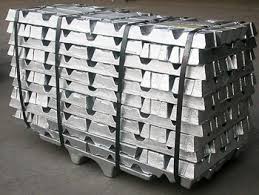Mechanized Cassava Cultivation and Glucose Syrup Production in Nigeria; The Feasibility Report.

Cassava is the third largest source of food carbohydrates in the tropics, after rice and maize. Cassava is a major staple food in the developing world, providing a basic diet for over half a billion people. It is one of the most drought tolerant crops, capable of growing on marginal soils. Nigeria is the world’s largest producer of cassava.
Cassava is the most important root crop in Nigeria. Apart from being a staple crop in both rural and urban household’s cassava is a major source of income to cassava farmers and processors in the rural areas.
Cassava alone contributes about 45% of agricultural GDP in Nigeria for food or domestic purposes but its industrial processing and utilization has been very limited.
Currently, the country produces about 40,000,000 tons of the cassava tubers annually. Glucose syrup is a thick aqueous solution made from the catalytic reaction of edible starch. Cassava starch, the major raw material is a product from cassava.
Although Nigeria’s cassava is being processed to local foods, its greater potential lies in its being processed to (intermediate) industrial products as to enable processors access higher value markets.
Glucose syrup production from cassava can be subdivided into the following process areas of liquefaction, saccharification, and purification. Glucose is produced commercially via the enzymatic process of Starch. Starch is produced from various raw materials like maize, cassava/tapioca roots, potatoes, wheat, rice etc. The establishment of a process for conversion of cassava starch to glucose syrup would enhance the local capability of glucose syrup production.
Glucose Syrup is an important sweetener in the food, confectionery and pharmaceutical industries. Currently, local production cannot meet the demand, hence, the local requirement is being met through importation.
Annual demand for sugar in Nigeria is estimated at 3.5 million tonnes per annum but only 2.4 million tonnes is produced locally while an annual demand of 170,000 tons exists for high fructose syrup and 60,000 tons/year for glucose syrup indicating a large for glucose syrup in Nigeria.
This report seeks to examine the financial viability or otherwise of establishing a mechanized cassava farm and glucose syrup production plant in Nigeria using cassava tubers as basic raw material.
The size and locations of the farms is seven hundred (700) hectares of land located in Edo State. Six hundred (600) hectares would be used for the farm while the remaining one hundred (100) hectares would be used for the construction of the production facility and other civil works. Improved cassava stem (TME 419) would be used in the farm and a yield of twenty (20) tons yield per hectare was assumed.
The proposed plant would comprise of glucose plant, cassava starch plant, Generator, Wagon Balance (Weight bridge), Transformer and Electrical Poles, Weighing Machine, Wood Pallets, AGO storage tank and Forklift. Other equipment’s includes delivery trucks, New John Deer tractor, Motorised Knapsack Sprayer, Cassava harvesting machines, cassava planting machines, disc harrows and stump removals.
The production capacity of the proposed plant is ten (10) tons of liquid glucose syrup (food grade, DE 85) per day of three (3) shifts of eight (8) hours each working at eighty percent (80%) of the installed capacity.
An Input output ratio of 4:1 was assumed for raw cassava tubers to starch and 1:1 for starch to glucose syrup. The finished products would be packaged in three hundred kilogramme (300 kg) plastic containers /drum.
Table of Contents
EXECUTIVE SUMMARY 1.0 Business Overview 1.1 Description of the Business 1.2 Vision and Mission Statement 1.3 Value Proposition 1.4 Critical Success Factor of the Business 1.5 Current Status of Business 1.6 Description of the Business Industry 1.7 Contribution to Local and National Economy 2.0 Agricultural Practice 2.1.0 Collection of stems 2.1.1 Planting 2.1.2 Manures and Fertilizers 2.1.3 Weeding 2.1.4 Climate / Irrigation 2.1.5 Harvesting and Yield 2.1.5.1 Herbicides 2.2 Factors of Production/ Cultivation 2.2.1 Soil Type 2.2.2 Diseases and Pests 3. Marketing Plan 3.1 Description of product 3.2 Product Packaging and delivery 3.3 The Opportunity 3.4 Pricing Strategy 3.5 Target Market 3.6 Distribution and Delivery Strategy 3.7 Promotional Strategy 3.8 Competition 4. Production Plan 4.1 Description of the Location 4.2 Raw Materials 4.3 Production Equipment 4.4 Production Process 4.5 Production Cost 4.6 Stock Control Process 4.7 Pre-Operating activities and expenses 4.7.1 Operating Activities and Expenses 4.8 Project Implementation Schedule 5.0 Organizational and Management Plan 5.1 Ownership of the business 5.2 Profile of the promoters 5.3 Key Management Staff 5.3.2 Management Support Units 5.4 Details of salary schedule 6. Financial Plan 6.1 Financial Assumption 6.2 Start – Up Capital Estimation 6.3 Source of Capital 6.4 Security of Loan 6.5 Loan Repayment Plan 6.6 Profit and Loss Analysis 6.7 Cash Flow Statement 6.8 Viability Analysis 7.0 Business Risk and mitigation factor 7.1 Business Risks 7.2 SWOT Analysis
Project Specification:
Additional Info
Get this Report
Direct bank transfer
To order the report, Please do pay the sum of ₦300,000 into
Account Name : Foraminifera Market Research Ltd
Account Number : 274 20 569 37
Account Name : Foraminifera Market Research Ltd
Account Number : 101 76 603 95
Account Name : Foraminifera Ventures
Account Number : 011 66 066 32
Make your payment directly into our bank account. Please use your Order ID as the payment reference. Your order will not be shipped until the funds have cleared in our account.
Instructions
After payment call us on 01 -29 52 413 / 08033782777 or email us at foraminiferamarketresearch@yahoo.com with the payment details. After payment confirmation, the soft copy of the report would be sent to you within 24 hours.


